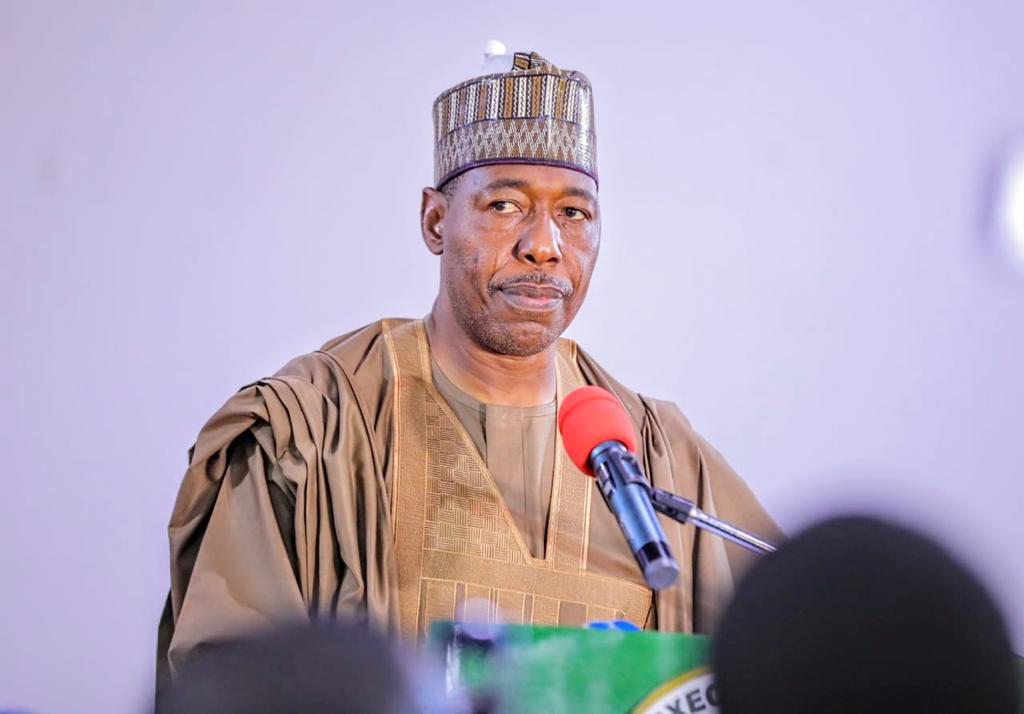Paragraph 1: Context of Displacement and Resettlement Efforts in Borno State
Borno State, located in northeastern Nigeria, has been the epicenter of a protracted insurgency led by the Boko Haram terrorist group. This conflict has resulted in widespread displacement, with hundreds of thousands of people forced to flee their homes and seek refuge in Internally Displaced Persons (IDP) camps. The state government, under Governor Babagana Zulum, has been actively pursuing a resettlement strategy to return displaced populations to their ancestral communities. This effort aims to restore normalcy, rebuild livelihoods, and foster long-term stability in the affected areas. The resettlement process involves providing returnees with essential support, including shelter, food, healthcare, and financial assistance to facilitate their reintegration.
Paragraph 2: Addressing Challenges within IDP Camps and the Urgency of Resettlement
The prolonged stay of displaced populations in IDP camps has created various challenges. Overcrowding, limited resources, and lack of opportunities have contributed to a rise in social issues, including prostitution, gangsterism, child abuse, and other criminal activities. These issues not only undermine the well-being of the displaced communities but also hinder the overall effort to restore peace and stability. Governor Zulum has emphasized the critical link between resettlement and eradicating Boko Haram’s influence. By enabling people to return to their homes, reclaim their livelihoods, and rebuild their communities, the government aims to weaken the terrorist group’s ability to recruit and exploit vulnerable populations.
Paragraph 3: Details of the Recent Resettlement Initiative in Dikwa and Mafa LGAs
Governor Zulum recently announced the successful resettlement of 6,000 families from IDP camps to their original communities in Dikwa and Mafa Local Government Areas (LGAs). This initiative is part of a broader strategy to close down formal IDP camps in Maiduguri, the state capital, and facilitate the voluntary return of displaced populations to safe and stable environments. The selection of Dikwa and Mafa LGAs for resettlement highlights the government’s assessment of improved security conditions in these areas, allowing for the safe return and reintegration of displaced families. The resettlement process entails a comprehensive support package to ensure the sustainable reintegration of returnees.
Paragraph 4: Comprehensive Support Package for Resettled Families
Each resettled family receives a comprehensive support package designed to facilitate their reintegration and enable them to rebuild their lives. This package includes essential provisions such as food items to alleviate immediate needs, shelter materials to reconstruct or repair damaged homes, and access to healthcare services to address their medical needs. In addition to these material provisions, the government is also providing financial assistance to empower returnees and enable them to restart their economic activities. Each male and female head of household receives N100,000 (approximately $220), while housewives receive N50,000 (approximately $110). This financial support is intended to help families meet their immediate needs, invest in small businesses, and contribute to the economic recovery of their communities.
Paragraph 5: Progress on Closing IDP Camps in Maiduguri and Future Plans
The Borno State government has made significant progress in its commitment to close formal IDP camps in Maiduguri, the state capital. With the closure of approximately 12 camps, the government has achieved a substantial reduction in the number of IDPs residing in these facilities. Governor Zulum highlighted that about 75% of the IDPs at the Muna camp, one of the largest in the state, have already been resettled, with the remaining 25% expected to return to their ancestral homes in the near future. This ongoing effort reflects the government’s commitment to transitioning away from the long-term dependency associated with IDP camps and promoting durable solutions for displaced populations.
Paragraph 6: Significance of Resettlement for Long-Term Peace and Development
The resettlement of displaced populations is a critical step towards achieving lasting peace and development in Borno State. By enabling people to return to their homes, reclaim their livelihoods, and rebuild their communities, the government is creating the foundation for a more stable and resilient future. The return of displaced populations also contributes to social cohesion, reconciliation, and the restoration of traditional governance structures. Furthermore, the economic revival of affected communities, facilitated by the government’s support package, will contribute to the overall economic recovery of the state. The successful implementation of the resettlement strategy is crucial for breaking the cycle of displacement and creating a pathway towards sustainable peace and development in Borno State.


